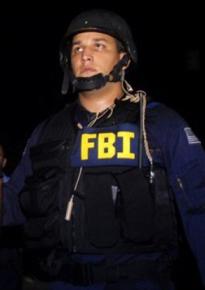Making racial profiling the rule
New FBI rules are part of the Bush administration's campaign to expand the police and spying powers of the federal government.
WHO NEEDS evidence when you can identify suspects by their religion or the color of the skin? That seems to be the guiding principle of new rules for the FBI that give a green light for racial profiling of Arabs and Muslims.
As civil liberties expert Juan Cole wrote on Salon.com:
Until now, [Department of Justice] guidelines have required the FBI to have some evidence of wrongdoing before it opens an investigation.
The impending new rules, which would be implemented later this summer, allow bureau agents to establish a terrorist profile or pattern of behavior and attributes and, on the basis of that profile, start investigating an individual or group. Agents would be permitted to ask 'open-ended questions' concerning the activities of Muslim Americans and Arab-Americans. A person's travel and occupation, as well as race or ethnicity, could be grounds for opening a national security investigation.
According to Attorney General Michael Mukasey, the rules change is needed to "allow the FBI to transform itself." But as Cole notes, the rules would allow the FBI to transform, without any public debate, into a domestic version of the CIA.
Historically--from the Palmer raids of the 1920s, to the witch-hunts of the McCarthy era, to the FBI's persecution of civil rights and antiwar activists in the 1960s--the U.S. government used the FBI as a tool of repression against activists and social movements.
When the gross abuses of the FBI's Counter Intelligence Program, or COINTELPRO, came to light in the 1970s, Congress was forced, under pressure from the public outcry, to put restrictions on the powers of the FBI and other law enforcement and security agencies.
But the Bush administration has been using September 11 and the "war on terror" to roll back these restrictions and expand the federal government's spying and police powers. The FBI rules on opening investigations--which, as Arab-American Institute President James Zogby put it, would make millions of Americans "subject to arbitrary and subjective ethnic and religious profiling"--are one more step in the process.
As Cole notes, such "fishing expeditions" have failed to pay off so far for the Bush administration. Instead, high-profile cases against alleged domestic "terrorists" have resulted in either acquittals or convictions that were later overturned when it became clear that overzealous FBI agents and prosecutors fabricated cases from such "evidence" as Arab men buying "too many" cell phones.
Stopping a return to the days of COINTELPRO will take more than help from Congress--which, despite its Democratic majority, has shown itself only too willing to roll over our civil liberties in the name of appearing "responsible."
On the recent wiretapping bill, for example, the Democrats gave the Bush administration everything it wanted and more by expanding the power of the Feds to eavesdrop on citizens without a warrant and giving retroactive immunity to telecom companies that knowingly broke the law by cooperating with the government in its illegal spying.
The Democrats are showing more clearly than ever why neither party can be trusted to protect civil liberties.



